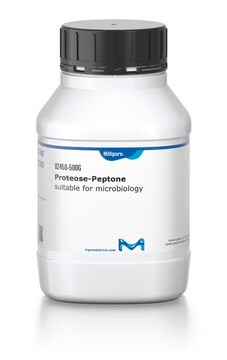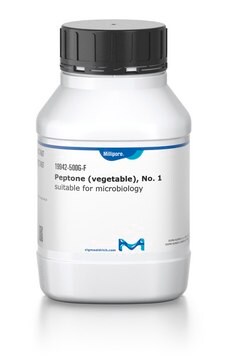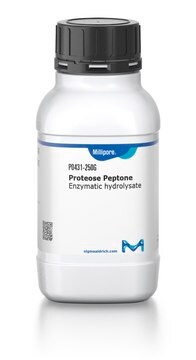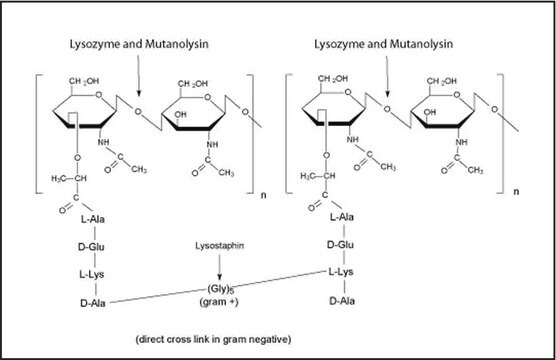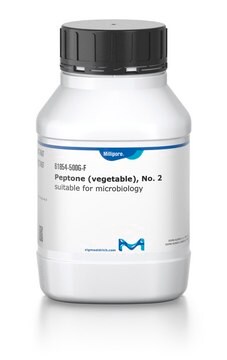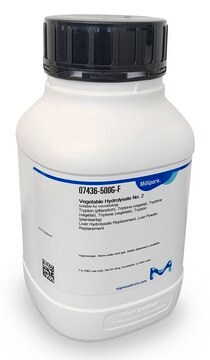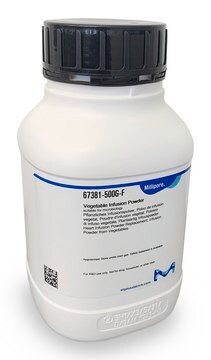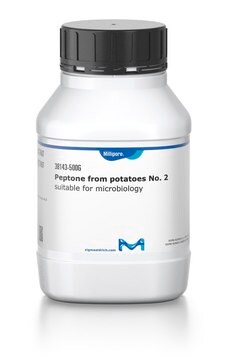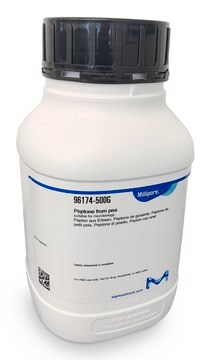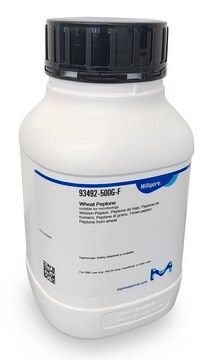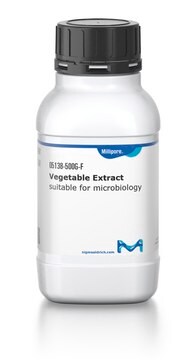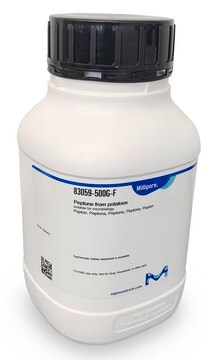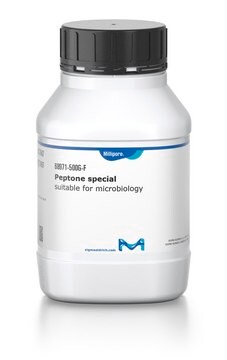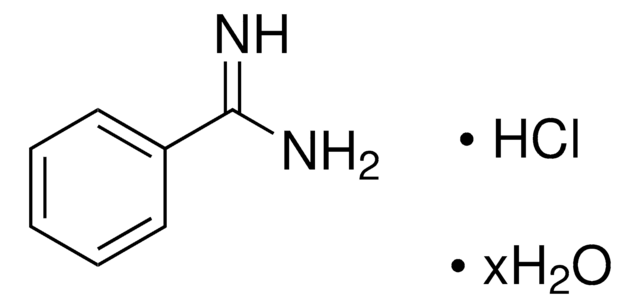29185
Proteose Peptone (vegetable)
suitable for microbiology
Sinónimos:
Peptone from vegetable, Peptone (vegetable), No. 3, Vegetable Proteose Peptone
About This Item
Productos recomendados
biological source
plant
Quality Level
form
powder
shelf life
limited shelf life, expiry date on the label
composition
amino-nitrogen, ≥3.2%
total nitrogen (N), ≥11%
impurities
≤12% ash
loss
≤6% loss on drying
pH
6.6±0.5 (25 °C, 2% in H2O)
solubility
H2O: 2%, clear, yellow
application(s)
food and beverages
vitamins, nutraceuticals, and natural products
microbiology
¿Está buscando productos similares? Visita Guía de comparación de productos
General description
Application
Storage Class
11 - Combustible Solids
wgk_germany
WGK 3
flash_point_f
Not applicable
flash_point_c
Not applicable
ppe
Eyeshields, Gloves, type N95 (US)
Elija entre una de las versiones más recientes:
¿Ya tiene este producto?
Encuentre la documentación para los productos que ha comprado recientemente en la Biblioteca de documentos.
Los clientes también vieron
Nuestro equipo de científicos tiene experiencia en todas las áreas de investigación: Ciencias de la vida, Ciencia de los materiales, Síntesis química, Cromatografía, Analítica y muchas otras.
Póngase en contacto con el Servicio técnico